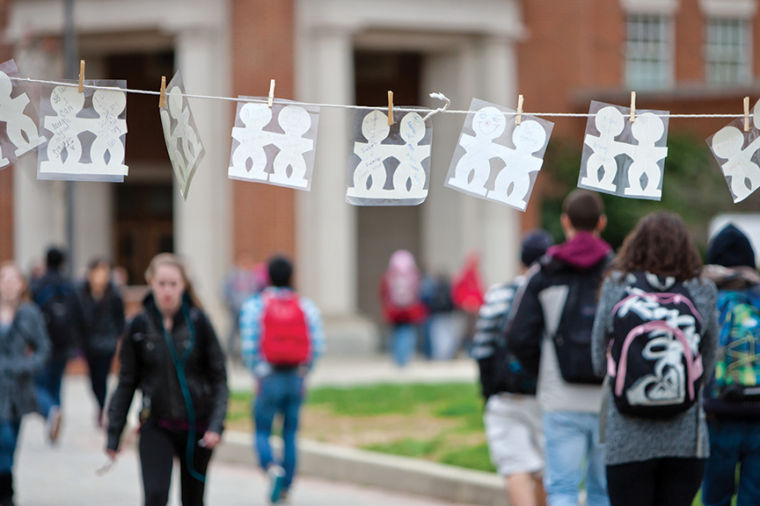Views expressed in opinion columns are the author’s own.
In the early days of quarantine, I noticed a lot of posts on social media arguing about how this time apart from those we care about in the middle of a global crisis will expose those who truly care about us and those who don’t. Often, those who made this argument claimed that, if most people are at home with their phones, friends choosing not to check up on you or to text you back means that they don’t care about you and that they deserve to be cut off. While I certainly understand the frustration of not hearing back from loved ones in an incredibly isolating period, I couldn’t help but be put off by the apparent sense of entitlement so many people seemed to feel toward their loved ones’ emotional capacity during a global crisis.
By exposing how interconnected we are and forcing us to find new ways to take care of each other during hardship, the COVID-19 crisis can sometimes force us to neglect our own needs to avoid coming off as uncaring or like we’re “abandoning” our friends and family. While we might not be able to completely withdraw from taking care of one another, it is even more important that we find ways to care for each other that are mindful of our own emotional bandwidth.
The week before last, one of my high school classmates was killed in an accident. I didn’t know him well, but many of my close friends did. As many people are tragically realizing, mourning in the time of COVID-19 is even more heartbreaking when we cannot physically show up for one another. This tragedy also occurred at the same time as I was struggling to get myself together after a difficult week, so being there for my friends, even remotely, was incredibly difficult.
I’m certainly not alone. A recent Kaiser Family Foundation poll found that 45 percent of U.S. adults reported that stressing over the virus has had a negative impact on their mental health. Forty-seven percent of people sheltering in place — compared to 37 percent of those who are not sheltering in place — reported a worsening of their mental health because of virus-related concerns. Self-isolation, when combined with such a crisis, clearly takes a toll on mental health and makes it harder for us to care for ourselves, let alone each other. In this context, not following up with people, not checking in or not replying right away is more a symptom of worsening mental health issues than of not caring about loved ones.
During this time, we all want to be there for each other. But we also need to be aware of and respectful of our own limits, as well as those of our loved ones. It’s so easy to get sucked into spending hours reading the news or on social media and feeling like we have to repost every awful story or console everyone who is struggling. I’m certainly not arguing that we should neglect people and stories that are important to us, but we should be careful of how we internalize the suffering of others and extend our support.
First and foremost, we need to be mindful of how we respond to tragic events, and we need to identify ways we can cope on our own. Secondly, we must allow ourselves the ability to say no. If you’re having a really difficult time coping with personal issues, try to limit your time scrolling on social media and reading the news. Communicate to your loved ones that you really want to show up for them at this moment, but you need some space for yourself first. Of course, there are exceptions to this depending on the nature of the situation, but this is something everyone should decide individually. Lastly, if you yourself are struggling and reach out to someone, accept that they may not reply right away and respect their need for space if they ask to get back to you another time. It takes a great deal of trust and vulnerability to articulate boundaries, especially during such a collectively traumatic event, so try to respect that as much as possible.
While these emotional support strategies are not all-inclusive, they can be a good place to start. This crisis is hard on all of us, and mitigating our expectations of ourselves and each other to reflect that is essential. After all, we may need each other more than ever, but that doesn’t eclipse our need to take care of ourselves.
Caterina Ieronimo is a sophomore government and politics major. She can be reached at ieronimocaterina@gmail.com.



